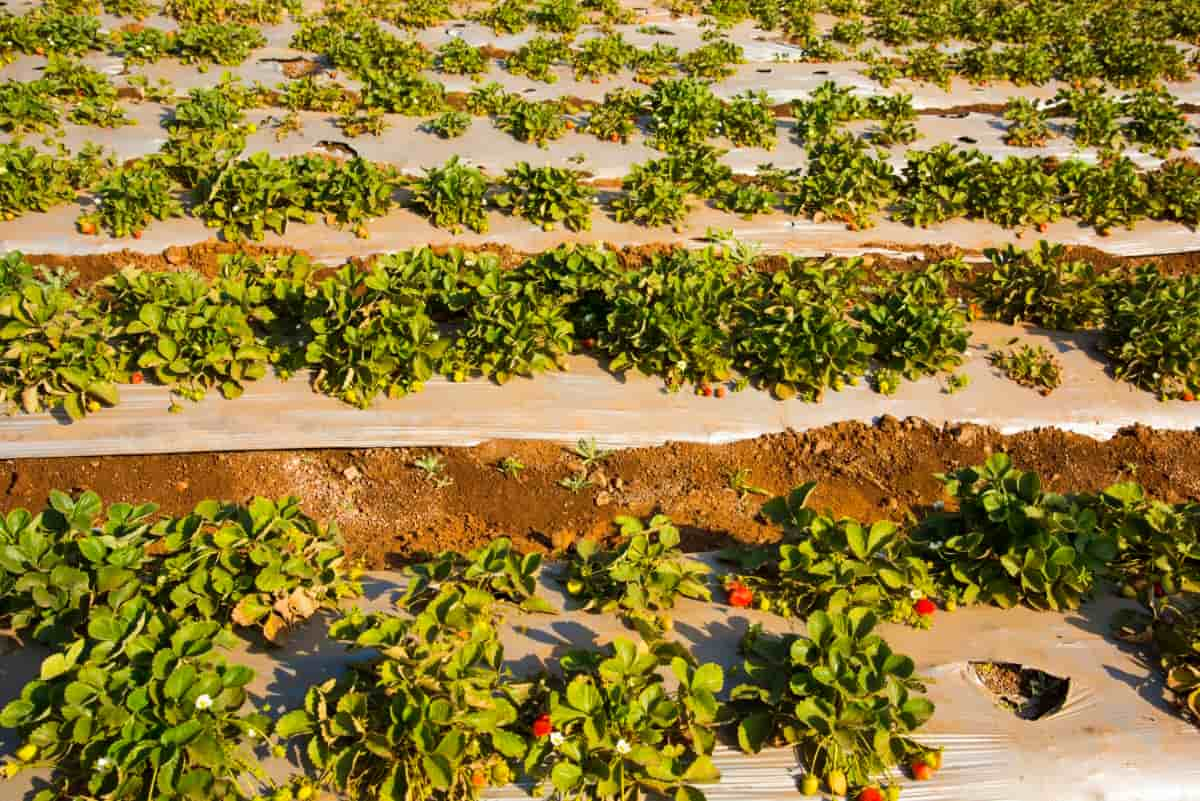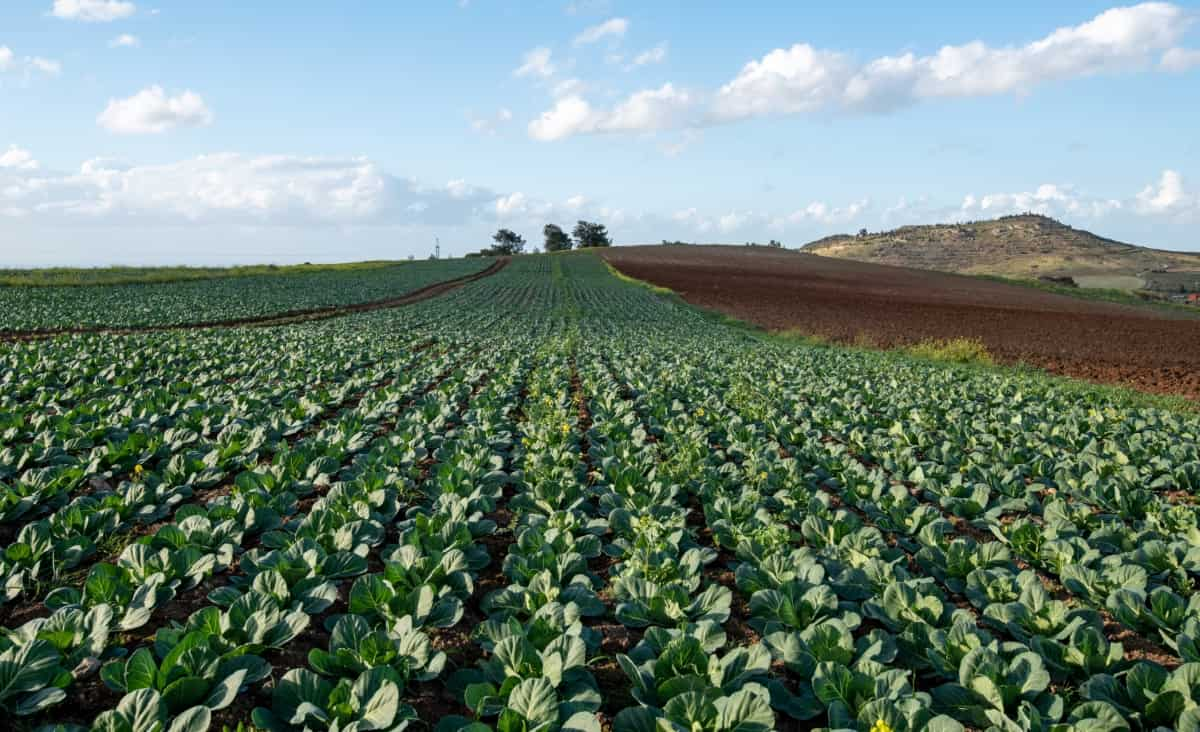Organic farming is increasingly becoming popular in New Zealand as consumers become more aware of organic produce’s environmental and health benefits. The growing demand for organic products offers a lucrative opportunity for those interested in starting an organic farming business in the country. This article will provide a detailed business plan for organic farming in New Zealand, including investment and profit margin figures and highlighting popular regions for organic farming.

Organic Farming Business Plan in New Zealand
Market Analysis
Before starting an organic farming business, it is crucial to analyze the market to understand the demand for organic products in New Zealand. Organic food sales have been rising rapidly in recent years, growing by 15% yearly to exceed NZD 700 million in 2020. This growth is expected to continue as consumers increasingly prioritize organic produce. Key products in the New Zealand organic market include fruits, vegetables, dairy, meat, and processed goods. Identifying the right niche and target market is essential for the success of your organic farming business.
Selecting the Right Location
Choosing the right location for your organic farm is critical, as it will influence your production costs, accessibility to markets, and overall profitability. Some popular regions for organic farming in New Zealand include Hawke’s Bay, Bay of Plenty, and Canterbury. These regions offer favorable climate conditions, fertile soil, and access to growing markets.
Investment and Profit Margin Figures
Starting an organic farm in New Zealand requires a significant upfront investment, but the long-term profit margins can be attractive. Initial costs include land acquisition, infrastructure development, equipment purchase, and certification fees. The cost of land varies depending on the region, but a ballpark figure is NZD 30,000 to NZD 60,000 per hectare. Infrastructure development, such as building greenhouses, irrigation systems, and storage facilities, may range from NZD 100,000 to NZD 300,000.
Equipment costs, including tractors, plows, and other machinery, can range from NZD 50,000 to NZD 150,000. Organic certification is essential for marketing your products, and the fees for certification with an organization like BioGro, one of the leading organic certifiers in New Zealand, range from NZD 1,000 to NZD 5,000 annually.
Operating costs, such as labor, seeds, compost, and marketing, will vary depending on the scale of your operation. However, due to the premium prices organic products command, profit margins can be higher than conventional farming. For instance, organic fruits and vegetables can fetch 30% to 50% higher prices than their conventionally grown counterparts, leading to profit margins ranging from 20% to 40%.
Choosing the Right Crops
Selecting the right crops for your organic farm is essential to optimize profits and ensure market demand. In New Zealand, popular organic crops include apples, kiwifruit, berries, avocados, and vegetables such as tomatoes, cucumbers, and leafy greens. While these crops are in high demand, you should also consider factors such as climate, soil type, and pest pressure when making your decision.
Production Techniques
Implementing sustainable and efficient organic farming practices is crucial to maximize yields and minimize the environmental impact. Key techniques include crop rotation, cover cropping, composting, biological pest control, and water conservation methods like drip irrigation. Adopting agroforestry and permaculture principles can further enhance the sustainability and productivity of your farm.
In case you missed it: Organic Farming Business Plan in Australia: Creating a Sustainable Green Future

Organic Certification and Compliance
Obtaining organic certification is essential to gain consumer trust and market your products at premium prices. New Zealand’s leading organic certification bodies include BioGro, AsureQuality, and OrganicFarmNZ. These organizations follow the national organic standards, which comply with international requirements. The certification process involves an initial assessment of your farm, followed by annual inspections to ensure continued adherence to organic standards.
Maintaining accurate records of your farming practices, inputs, and outputs is crucial throughout the certification process. This documentation will demonstrate your compliance with organic standards and support the traceability of your products. In addition to organic certification, you must also adhere to local and national food safety, labor, and environmental protection regulations.
Marketing and Distribution
Developing a strong marketing strategy is vital for the success of your organic farming business. You can market your products through various channels, including farmers’ markets, farm shops, online platforms, and direct sales to retailers and restaurants. Building relationships with local distributors and wholesalers can also help you reach a larger audience.
Promoting your organic certification and highlighting your products’ environmental and health benefits can differentiate your brand from competitors. Utilizing social media, engaging with local communities, and participating in industry events can help raise awareness and build customer loyalty.
Financial Planning and Risk Management
A solid financial plan is necessary to ensure the viability and sustainability of your organic farming business. This plan should include detailed revenue projections, expenses, cash flow analysis, and identifying potential funding sources such as loans, grants, and investors. Risk management is essential to organic farming, as it helps mitigate potential losses due to unpredictable factors such as weather, pests, and market fluctuations. Implementing strategies like crop diversification, insurance and developing a robust network of buyers can help minimize these risks.
Education and Training
Investing in education and training is crucial for staying up-to-date with the latest organic farming practices, technologies, and market trends. Participating in workshops, conferences, and online courses can provide valuable knowledge and networking opportunities. Joining industry associations like Organics Aotearoa New Zealand (OANZ) and the Soil & Health Association can also help you stay informed and connected within the organic farming community.
Future Growth and Expansion
As your organic farming business grows, you may consider expanding your product range, increasing production capacity, or exploring value-added opportunities such as processing and packaging. Developing partnerships with other organic farms or businesses can also create synergies and mutual benefits, helping to strengthen your position in the market.
In case you missed it: Organic Farming Business Plan in the USA for Maximizing Yield and Profit

Conclusion
Organic farming offers a promising business opportunity in New Zealand, driven by increasing consumer demand for sustainable and healthy food choices. By developing a comprehensive business plan, focusing on market analysis, location, investment, crop selection, production techniques, certification, marketing, financial planning, and ongoing education, you can set your organic farm on a path to success and profitability.
- Feed Your Flock for Less: Top 10 Tips to Save on Chicken Feed
- Ultimate Guide to Ossabaw Island Hog: Breeding, Raising, Diet, and Care
- Hatching Answers: The Top 10 Reasons Your Chickens Aren’t Laying Eggs
- Eggs and Economics: Breaking Down the Cost of Raising Backyard Chickens
- Defend Your Greens: Proven Methods to Keep Iguanas Out of Your Garden
- Ultimate Guide to Cinnamon Queen Chicken: A Comprehensive Guide for Beginners
- Ultimate Guide to California Tan Chicken: Breeding, Raising, Diet, Egg-Production and Care
- Ultimate Guide to Marsh Daisy Chicken: Breeding, Raising, Diet, and Care
- 10 Types of Chicken Farming Businesses You Can Start for Profits